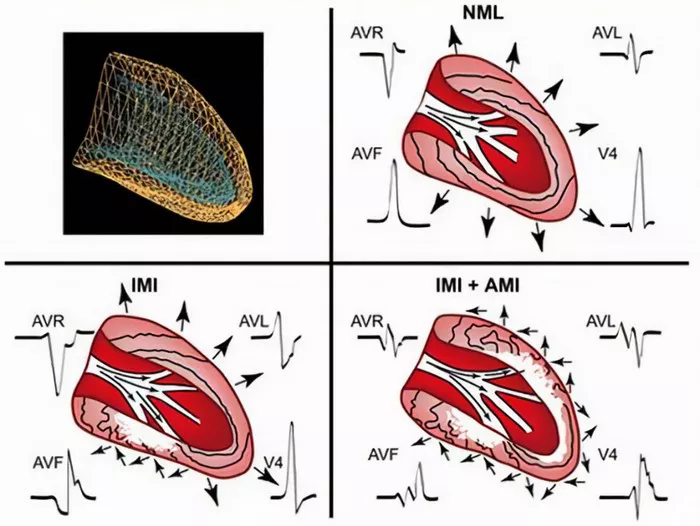Ischemic heart disease (IHD), also known as coronary artery disease (CAD) or coronary heart disease (CHD), is a common and serious condition that affects millions of people worldwide. It is the leading cause of death globally, highlighting the critical importance of understanding its causes, symptoms, diagnosis, and treatment options. In this comprehensive article, we delve into the intricate details of ischemic heart disease to provide a thorough understanding of this condition.
What Is Ischemic Heart Disease?
Ischemic heart disease refers to a condition in which the blood supply to the heart muscle is reduced or restricted due to the narrowing or blockage of coronary arteries. These arteries supply oxygen-rich blood to the heart, and when they become narrowed or blocked, the heart muscle does not receive an adequate amount of oxygen and nutrients, leading to various symptoms and complications.
Causes of Ischemic Heart Disease
The primary cause of ischemic heart disease is the buildup of plaque (atherosclerosis) in the coronary arteries. Plaque is composed of cholesterol, fat, calcium, and other substances found in the blood. Over time, these substances can accumulate on the inner walls of the arteries, forming plaque deposits. This buildup narrows the arteries, reducing blood flow to the heart.
Several factors contribute to the development of plaque and the progression of ischemic heart disease, including:
1. High Cholesterol Levels: Elevated levels of LDL cholesterol (often referred to as “bad” cholesterol) can lead to the formation of plaque in the arteries.
2. High Blood Pressure: Hypertension can cause damage to the arterial walls, making them more susceptible to plaque buildup.
3. Smoking: Tobacco smoke contains harmful chemicals that can damage blood vessels and accelerate the development of atherosclerosis.
4. Diabetes: Uncontrolled diabetes can damage blood vessels and increase the risk of atherosclerosis.
5. Obesity and Inactivity: Being overweight or sedentary can contribute to high cholesterol levels, high blood pressure, and insulin resistance, all of which are risk factors for ischemic heart disease.
Symptoms of Ischemic Heart Disease
The symptoms of ischemic heart disease can vary depending on the severity of the condition and the extent of coronary artery blockage. Common symptoms include:
1. Angina: Chest pain or discomfort that may feel like pressure, squeezing, fullness, or tightness. Angina is often triggered by physical exertion or emotional stress and typically subsides with rest or medication.
2. Shortness of Breath: Difficulty breathing, especially during physical activity or exertion.
3. Fatigue: Feeling unusually tired or fatigued, even with minimal physical activity.
4. Heart Attack: Severe chest pain, sweating, nausea, vomiting, dizziness, and shortness of breath. A heart attack requires immediate medical attention.
It’s important to note that some individuals, particularly women and older adults, may experience atypical symptoms or no symptoms at all, which can make diagnosis challenging.
Diagnosis of Ischemic Heart Disease
Diagnosing ischemic heart disease involves a combination of medical history assessment, physical examination, and diagnostic tests. Some of the commonly used diagnostic tests include:
1. Electrocardiogram (ECG or EKG): This test records the electrical activity of the heart and can detect abnormal heart rhythms, signs of a previous heart attack, or ischemic changes.
2. Stress Test: Also known as a treadmill test or exercise stress test, this evaluates how the heart responds to physical exertion and can detect reduced blood flow to the heart muscle.
3. Echocardiogram: This imaging test uses sound waves to create a detailed image of the heart’s structure and function, helping assess heart function and identify areas of reduced blood flow.
4. Coronary Angiography: A minimally invasive procedure that involves injecting contrast dye into the coronary arteries and taking X-ray images (angiograms) to visualize blockages or narrowed areas.
Treatment Options for Ischemic Heart Disease
The management of ischemic heart disease aims to relieve symptoms, improve heart function, and reduce the risk of complications such as heart attacks and heart failure. Treatment options may include:
1. Lifestyle Modifications: Adopting a heart-healthy lifestyle with regular exercise, a balanced diet low in saturated fats and cholesterol, smoking cessation, and stress management.
2. Medications: Prescription medications such as statins to lower cholesterol, antiplatelet drugs to prevent blood clots, beta-blockers to reduce heart rate and blood pressure, and nitroglycerin to relieve angina symptoms.
3. Interventional Procedures: In cases of severe coronary artery blockage, procedures such as angioplasty and stent placement may be performed to open blocked arteries and improve blood flow.
4. Coronary Artery Bypass Grafting (CABG): For complex cases or multiple blockages, CABG surgery may be recommended to create new routes for blood to bypass blocked arteries and improve heart function.
Conclusion
Ischemic heart disease is a complex and serious condition that requires timely diagnosis and appropriate management to prevent complications and improve quality of life. By understanding the causes, symptoms, diagnosis, and treatment options for ischemic heart disease, individuals can take proactive steps to protect their heart health and reduce the risk of cardiovascular events. Regular medical check-ups, lifestyle modifications, and adherence to prescribed treatments play crucial roles in managing this condition effectively. If you experience any symptoms suggestive of ischemic heart disease, seek prompt medical attention for evaluation and personalized care.

